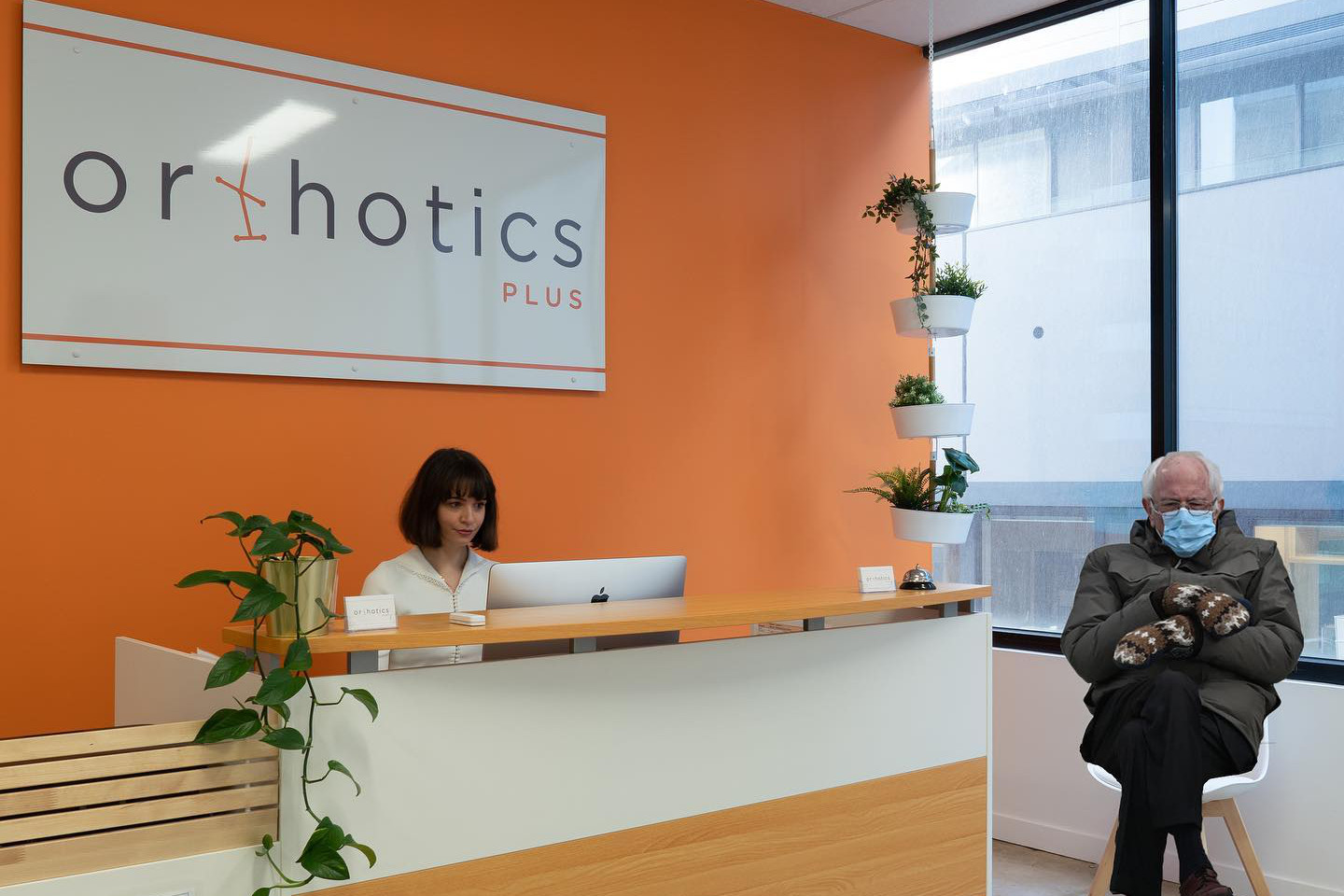NDIS Footwear and Modifications
At Orthotics Plus, we provide custom footwear solutions for NDIS participants, ensuring comfort, support, and functionality.
This page describes the types of footwear covered under the NDIS, assessment processes, funding categories, and how appropriate footwear contributes to meaningful goals.
If you are seeking footwear solutions for an NDIS participant, Orthotics Plus has five locations in Melbourne, and we are proudly NDIS registered.
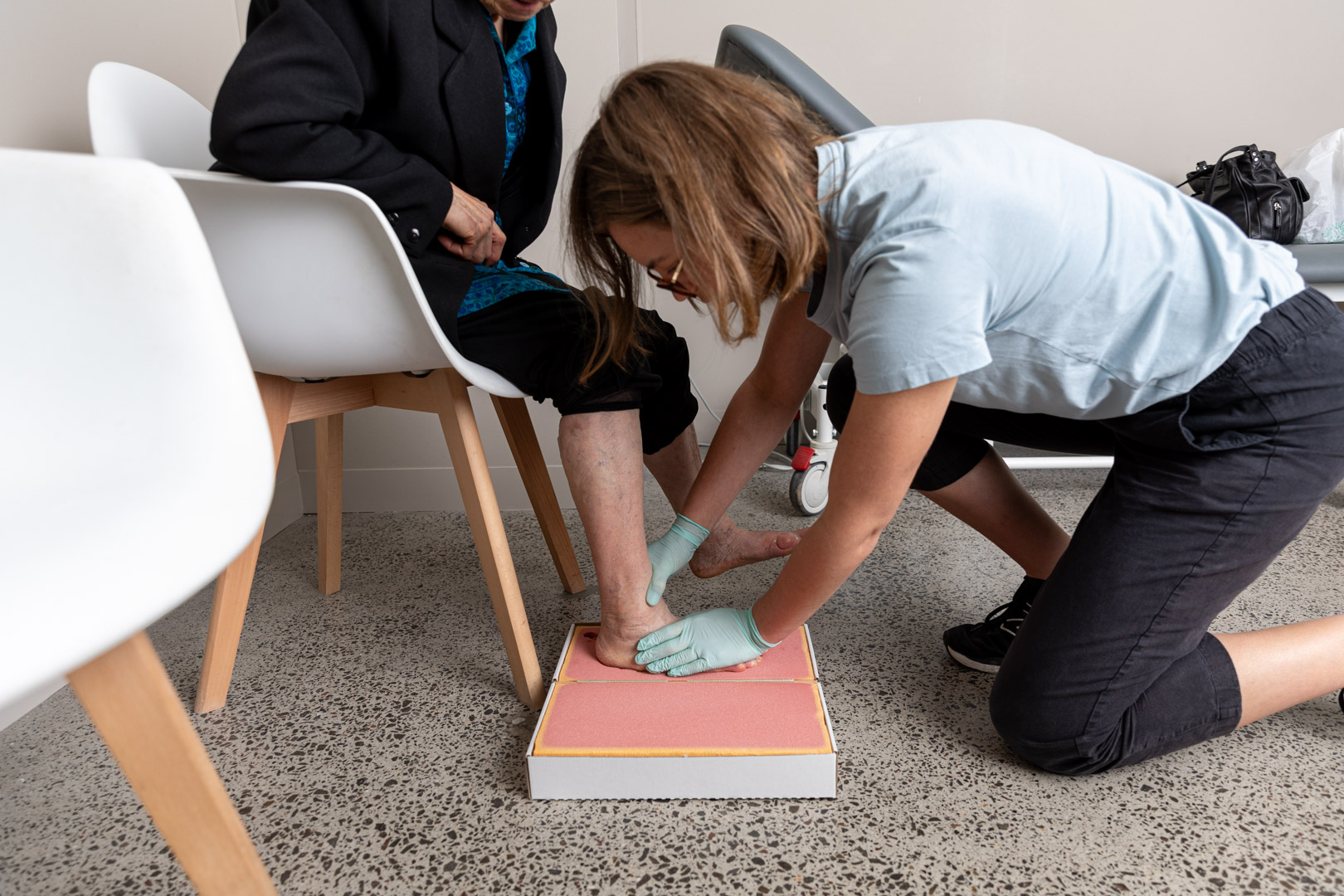
What Types of Footwear Does the NDIS Cover?
NDIS funding can cover both custom footwear, which is fabricated from scratch, and orthopaedic extra width and depth footwear, which are off-the-shelf shoes designed with a wider and deeper fit for enhanced comfort and support.
The NDIS covers a range of footwear, including:
- Work boots
- Running shoes
- Everyday footwear
- Sandals
There are times where we either stock or create the footwear, however, there are other times where a participant is better served, or has preference for a particular brand.
In these circumstances, we provide recommendations on specific brands and styles that participants can purchase themselves or that we can acquire on their behalf.
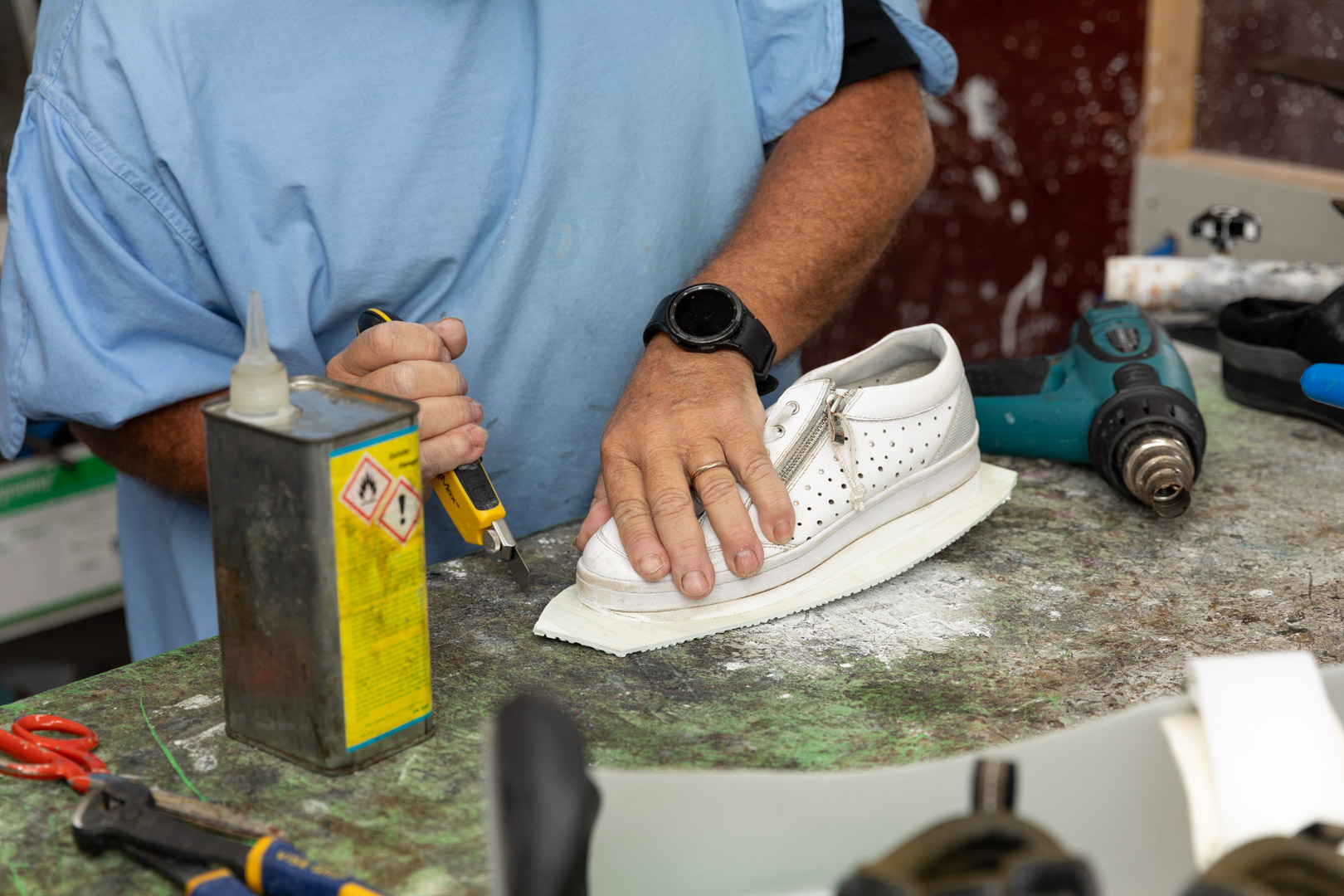
Assessing the Need for Specialised Footwear
An assessment will involved a detail review of the medical history, lifestyle, foot measurements, gait analysis, existing footwear and assessment of relevant conditions.
In some cases, standard retail options may be suitable, and we may advise participants to purchase from mainstream stores.
However, for individuals requiring wider, deeper shoes to accommodate foot orthotics, ankle foot orthosis or unique foot conditions, orthopaedic extra width and depth footwear is often necessary.
These shoes are available in multiple widths and depths, making them ideal for conditions requiring added space and support.
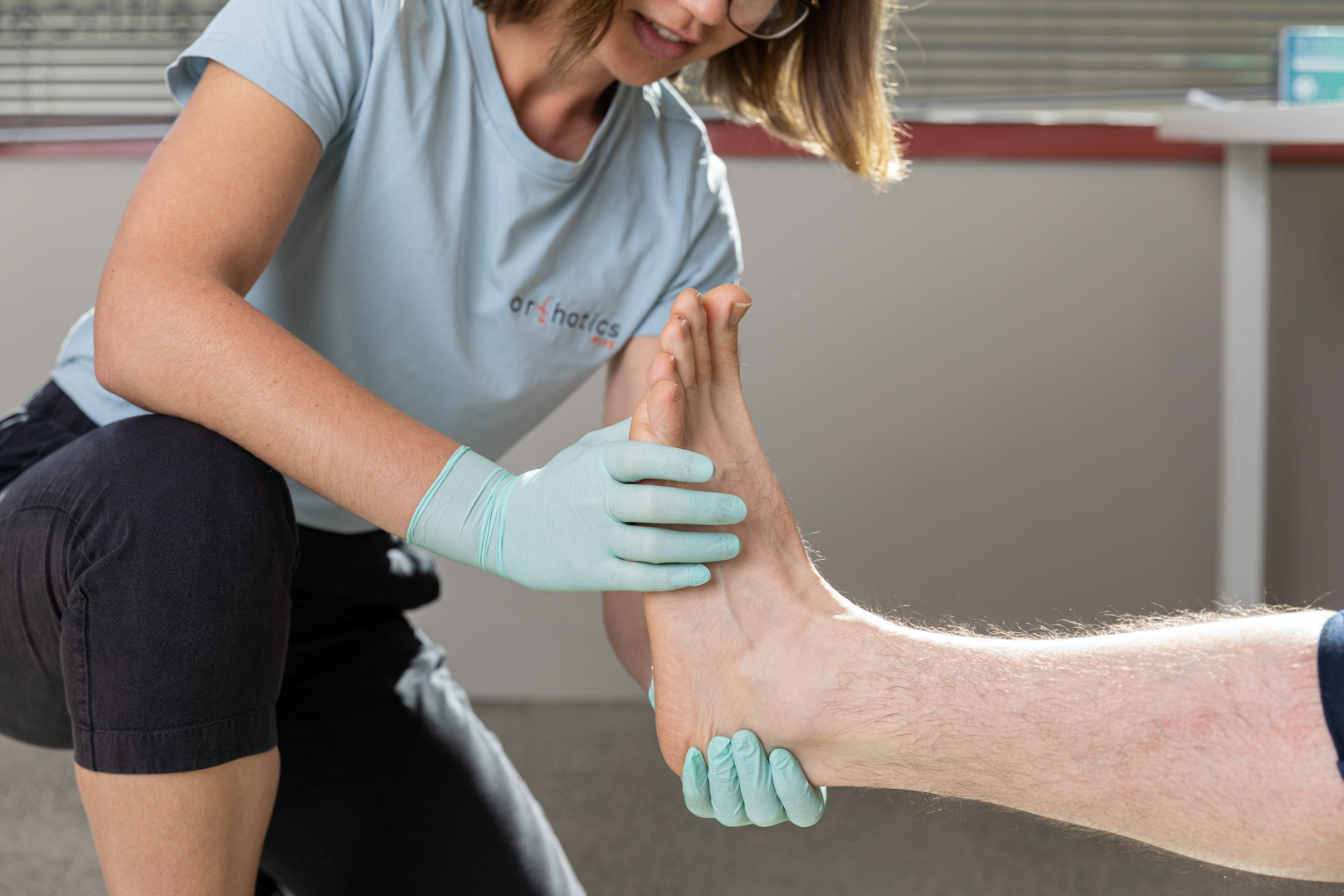
Common Conditions Requiring NDIS-Funded Footwear
Specialised footwear is commonly prescribed for:
- Neurological conditions (e.g., stroke patients wearing AFOs)
- Foot deformities
- Conditions affecting the use of the hand/fingers (many times, velcro fastenings will be recommended)
- Any condition necessitating custom modifications

How Does the Funding Process for Footwear Work?
After assessing the participant’s needs, we discuss suitable footwear options and ensure they are willing to wear the recommended style. NDIS funding for footwear is typically combined with orthotics, as footwear is often considered an accessory to the overall orthotic support.
Footwear is reviewed annually.
Many participants receive two pairs (e.g., runners and sandals) within a 12-month period. Replacements depend on wear and usage—those who are predominantly wheelchair-bound may not require new shoes as frequently.
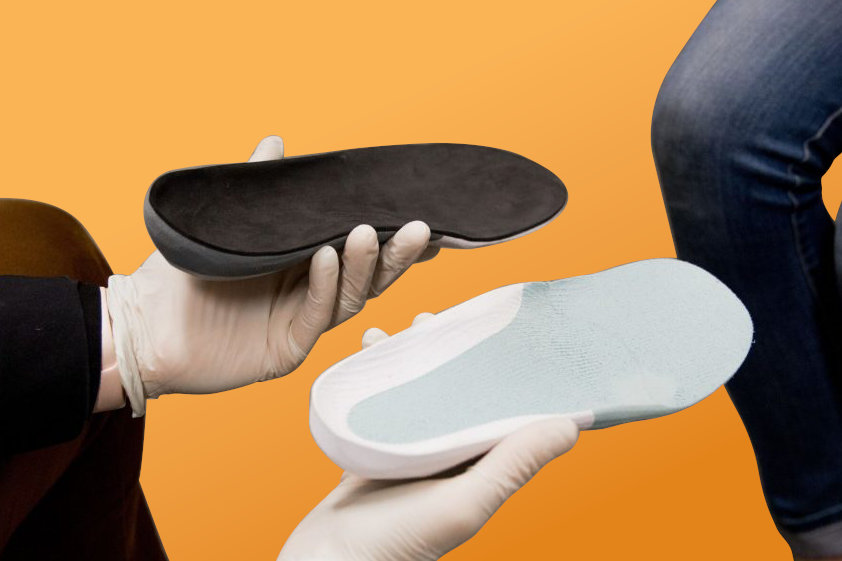
Notes on Repairs and Modifications
Minor repairs such as Velcro replacements are covered by the NDIS, though in many cases, worn footwear may need full replacement. Shoe modifications, such as heel raises, lateral flares, and carbon fibre stiffeners, are funded as part of the initial application process.
The funding is covered under the below categories:
-
- Consumables: If the footwear costs around $350, it often falls under consumables.
- Low-Cost Assistive Technology (AT): If custom footwear exceeds $1,000, it typically falls under this category.
Our team advocates for choice and control, and we will give appropriate advice and support.
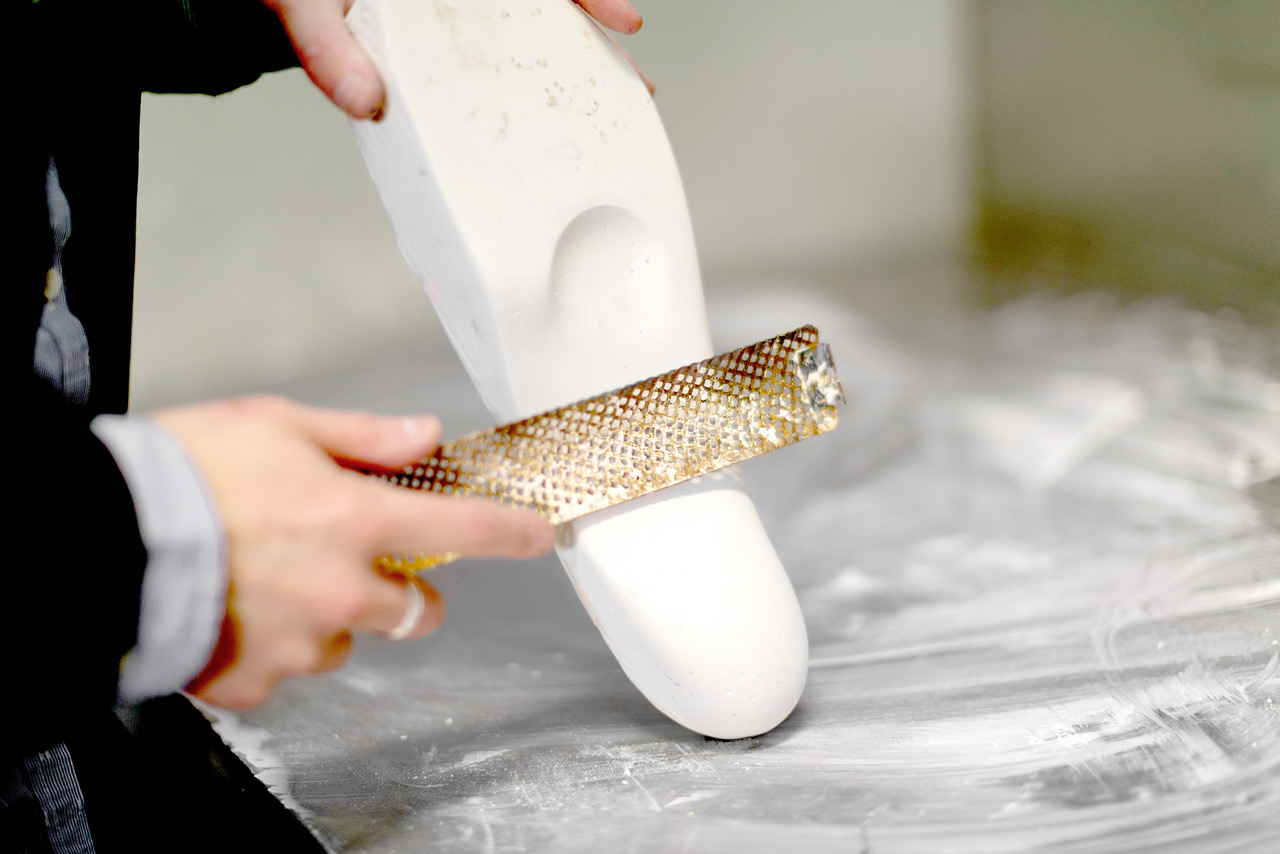
Footwear Style Concerns for Children
For children requiring custom footwear, style preferences are considered where possible.
Some off-the-shelf brands, such as Nikes, may provide a wider fit suitable for orthotic needs.
When custom shoes are required, we aim to design them to reflect age-appropriate styles. Certain brands have given us permission to use their style and logos when making custom shoes for patients with disabilities.

Footwear and Relation to NDIS Goals
Appropriate footwear plays a role in enhancing mobility, stability, and participation in everyday activities.
For NDIS participants, well-fitted, supportive shoes can improve balance, extend standing tolerance, and promote active community involvement.
When making devices such as AFOs and KAFOs, the footwear is an integral part of the treatment and appropriate shoes are very important.
At Orthotics Plus, we ensure that every participant receives footwear tailored to their individual needs, enabling them to achieve their personal and mobility goals.
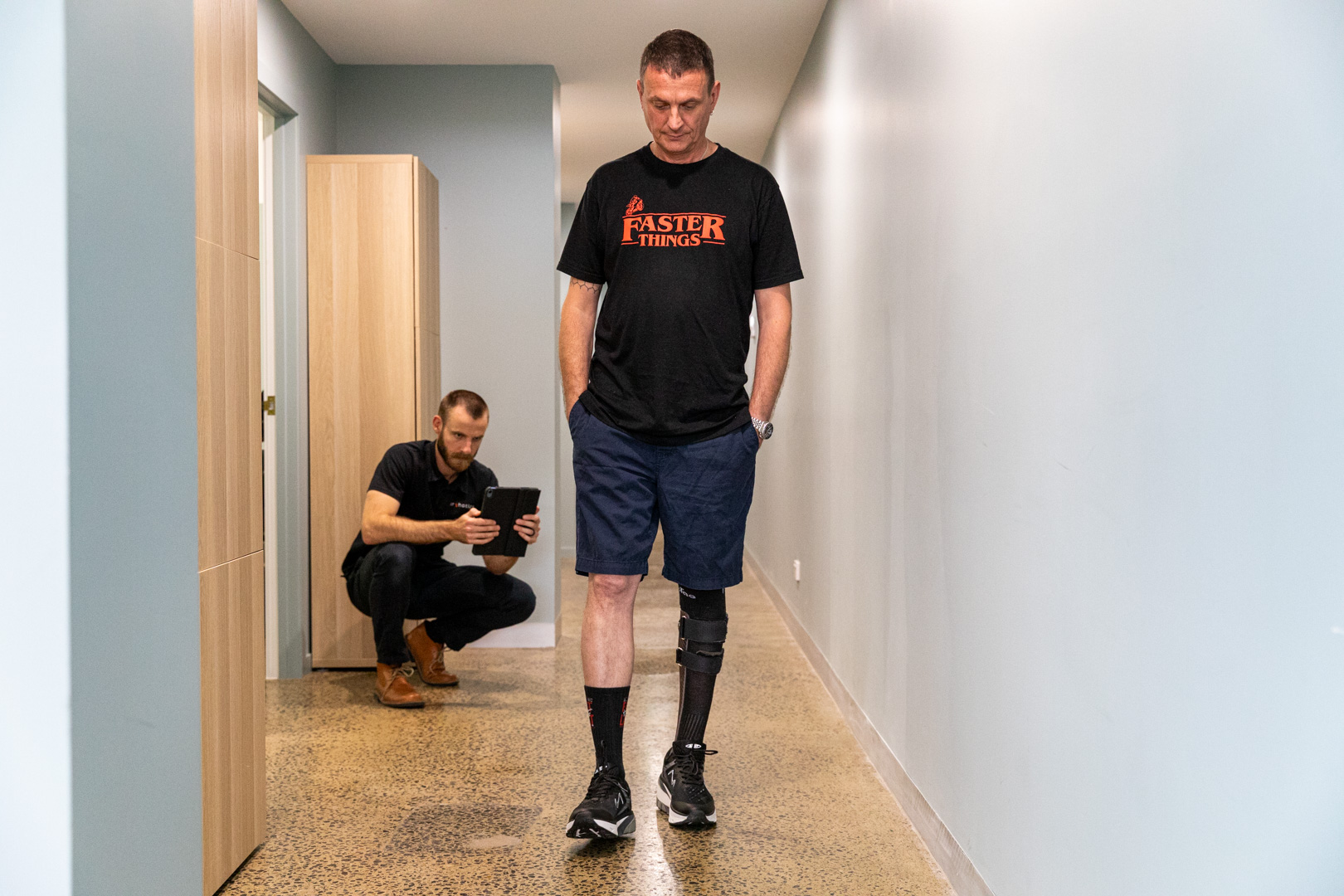
Contact Orthotics Plus
At Orthotics Plus, we see NDIS participants of all ages.
- We are NDIS registered
- We have multiple clinic locations in Melbourne
- You can contact us before booking your appointment to ask questions
- Our team possesses a wealth of experience
If you would like to know if Orthotics Plus is right for you, please contact us to describe your situation.
